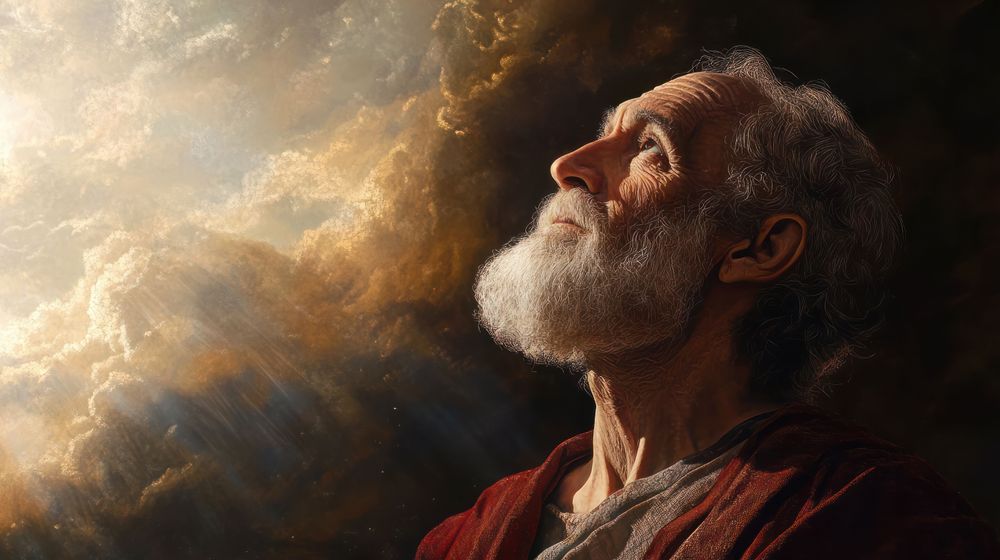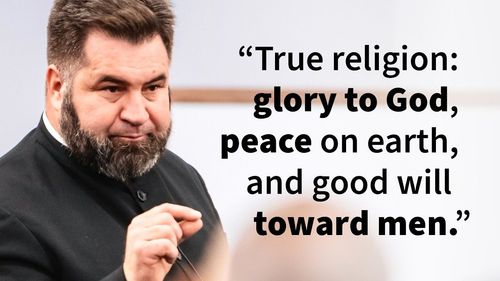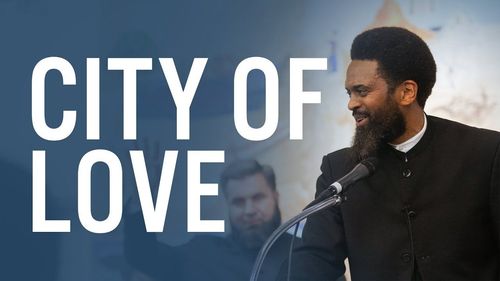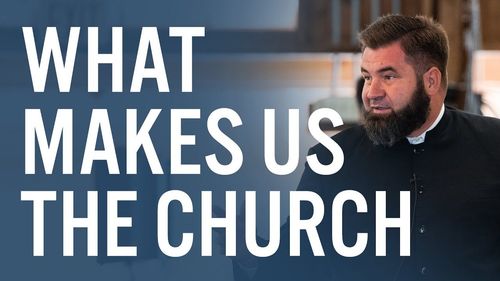In exile upon the lonely Isle of Patmos, a burdened apostle toiled with the thought of the unfinished work he was to leave behind. He had been there through the years of Jesus’ earthly ministry, watched Him feed the multitudes, heard His revolutionary message, and experienced the people’s divided response. At the well with the Gentile woman of Samaria, he had heard Christ’s groan for laborers and pondered in his sensitive heart what that ripened harvest field must mean. Then, as Christ prepared to seal His message with blood, John had received the commission to continue the great work of unity and reconciliation which Christ had begun.
John had pondered deeply the weight and scope of the mission Jesus had impressed upon him and upon his comrades–twelve men specially chosen and sent just as Jesus had been sent to do the work of Christ in His absence. It was a work of reconciling God with man and of reconciling man with his brother. It was a work of reconciling Jew with Gentile. It was a commission so deep and so wide that John had lived his whole life and still had not seen it completed.
Despite the tremendous work that had been done and the reconciliation that had been made, John recognized that there were prophecies which remained unfulfilled–known in part, truly, but not known as they ought to be known. There was a greater work that must happen before the Great Commission could be fulfilled. Time must go on, but John’s days upon earth were numbered. Who would do the work? Who could do the work?
Breaking into John’s reverie that Sunday morning there sounded a voice both commanding and familiar, and the message it carried held the answers for which John’s soul yearned. “I am Alpha and Omega,” the voice assured, “the beginning and the ending.” Looking to see the source of that familiar voice, John beheld Jesus–not alone, but together with and enshrined in the light of seven golden candlesticks. The symbolism of the candlestick was clear (Rev. 1:20). Christ was revealing Himself in the person of His church; and with them together the light of the world, He showed Himself unstoppable. The beginning had been good, there was no question. And so would be the ending. He who had begun the work would finish it. He would see to it that the light He had carried and the work He had brought into being would be carried on to the very end of time.
As John marveled and took down the words which were to be sent in letters to the churches of Asia, the vision of the candlestick gave place to a vision yet more grand–a vision of the throne of God itself, encircled by a rainbow and bordered by a sea of glass. Included within the throne where the Almighty reigned supreme, John noticed the seats of elders reigning in authority with Him–not twelve elders as there had been at the start, but twenty-four elders, a number inclusive of more to come. There would be more men to carry on the legacy Christ had begun. There would be more seats to fill before the prophetic picture could be perfected. And so John looked and wondered as vision by vision unfolded. As he looked, he recorded for future generations the hope that he had seen. Dark times would come. Powers would attack the church. But the end would be glorious.
The entire vision recorded in the book of Revelation is not a vision of a work that had already pinnacled in the time of John the apostle. Clearly, it was a work whose climax lay at the end. A panoramic view of two thousand and more years of history revealed its most momentous struggle in the last moments before the White Throne Judgment itself (Rev. 20:9). It showed the most dazzling display of God’s glory to the world during the sounding of the last message of a series of angelic messengers (Rev. 16:17-18). The greatest judgments, the greatest revealing of wickedness, and the greatest downfall of everything that opposed holines–all were reserved until the very end (Rev. chapters 15–18).
While some theories have placed such events in a future dispensation, a careful reading of Scripture in its proper context yields no indication of any dispensation other than the present day of grace. Also, the time-centered language of these prophecies (e.g. Rev. 10:7) strongly indicates fulfillment before the final day of Judgment, after which there will be only eternity and no more time. We can only conclude that time itself will yet witness a glorious revealing of Christ’s power such as has never before been known. There will be a final showdown between the church and the powers of wickedness dwarfing even what John experienced.
This is a bold position to take, but it is everywhere corroborated by Scripture. Zechariah, looking forward in prophetic vision to the Gospel Day, noted that after the rising of the Sun of Righteousness (see Mal. 4:1-2), there would be a time when the gospel light would not shine clearly. At the end of this prophetic day, however, there would be light (Zech. 14:6-7). Paul and Peter in their writings foreshadowed times of falling away and trouble for the church (1 Thess. 2; 2 Pet. 2); yet Paul assured his readers that the church for which Christ would return was to be glorious (Eph. 5:27).
The church lost much of its respect in the world when it lost the early glory of its government. Lukewarmness and apostasy made successful inroads where before they had been avoided–not that the spirits of lukewarmness and apostasy had never tried to attack the church before, but now there was no one there to stop them. False prophets in the guise of leaders of the church became vehicles themselves for this corruption and apostasy. In time, respect for church leadership was so low that individuals felt justified living according to the guide of their own conscience, a sentiment which, however seemingly justifiable in the moment, led to catastrophic results. Unity was lost, the message of reconciliation lost its potency, and factions strove bitterly with each other over the most minor of issues because there was not a central authority with power to unite them.
In light of John’s vision and the corroborating prophecies, is this the state we can expect the church of God to be in upon Christ’s final return? Is God going to leave the work of the most difficult struggle to a ministry less powerful than the early morning apostleship? Does the church expect to conquer a more organized and desperate foe than ever before with a more divided, disorganized, and disempowered church government? Is God to rely on a scattered people with scattered interpretations of a government that hasn’t existed for 2,000 years when Satan has fully functioning current authorities and systems in place? If Satan is at his best, will not God bring out His best for the final showdown?
As soon as the magnitude of the end-time work of the church sinks in, it is no stretch of the imagination to realize the caliber of authority God must invest in His end-time workers. Without current apostolic authority, we are a joke and an open prey. We are children without a father and an army without a commander. We have lost all relevance and all legitimacy as a people. The church of the end is to be a formidable force. And it is not to be feeble in its government.
Revelation 10 records a beautiful vision of a mighty end-time messenger clothed with a cloud of witness, surrounded by a rainbow of promise, and feet astride the sea and the earth in a gesture of dominion. In his hand he holds an open book, and the words that are uttered by the thundering voices around him are words John is not permitted to write. “And when the seven thunders had uttered their voices, I was about to write: and I heard a voice from heaven saying unto me, Seal up those things which the seven thunders uttered, and write them not…But in the days of the voice of the seventh angel, when he shall begin to sound, the mystery of God should be finished, as he hath declared to his servants the prophets” (Rev. 10:4,7). There were, in other words, things John could not declare–even in his writing of Scripture–which one day would be declared. There were questions John was not given the ability to answer which one day someone would answer. Another messenger was coming–a messenger powerful enough to deal with the end-time reconciliation message. John could not finish the work. But someone would.



